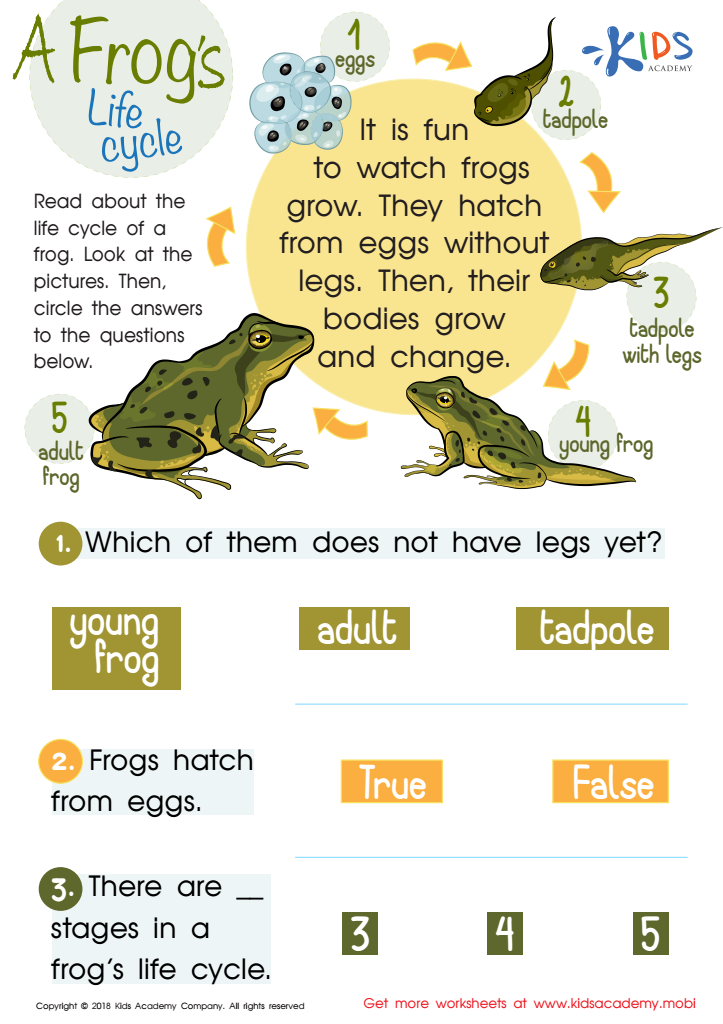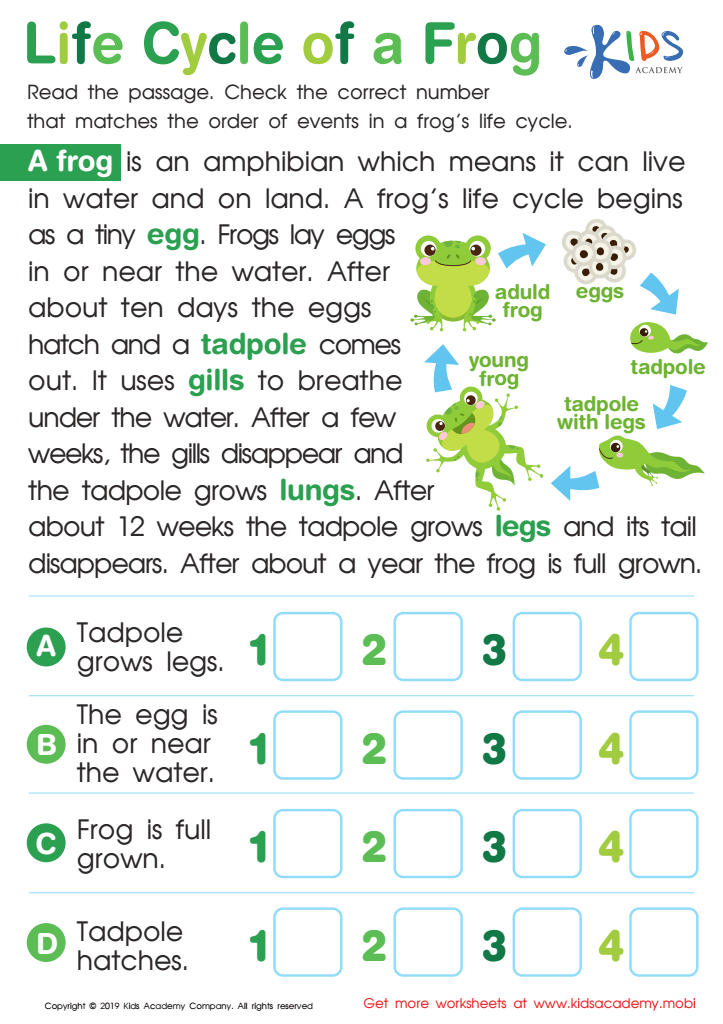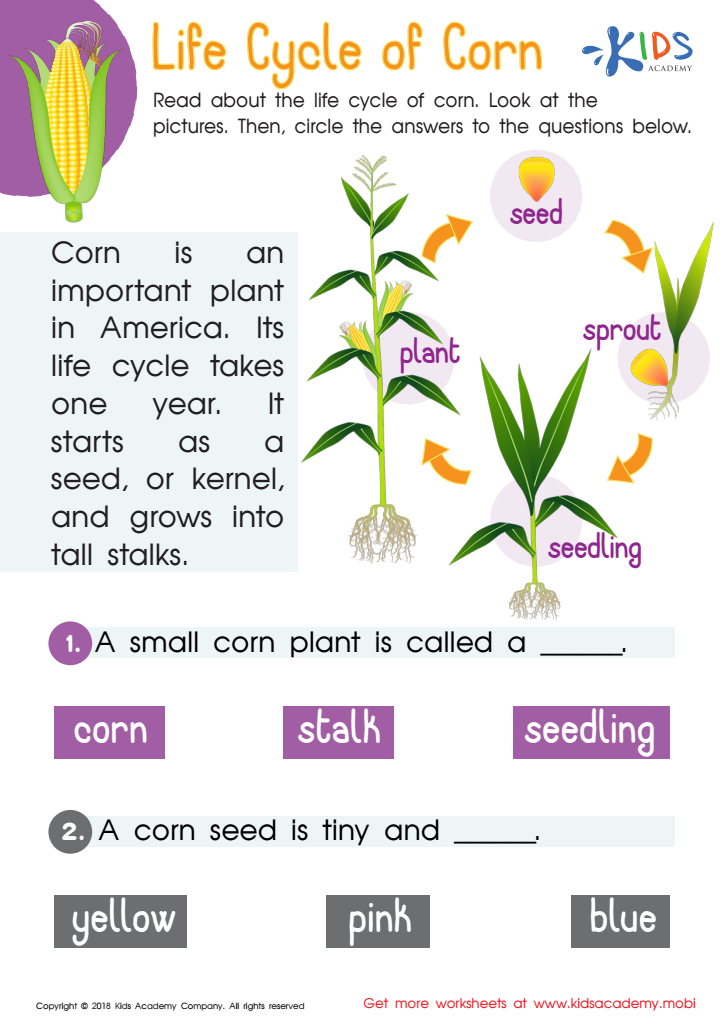Understanding life cycles Easy Reading Non-Fiction Worksheets for 8-Year-Olds
3 filtered results
-
From - To
Discover "Understanding Life Cycles: Easy Reading Non-Fiction Worksheets" tailored for 8-year-olds. These engaging and educational worksheets from Kids Academy simplify complex concepts about various life cycles, fostering curiosity and a love for science. Interactive activities bolster reading comprehension and critical thinking, making learning enjoyable and accessible. Ideal for parents and educators aiming to strengthen foundational knowledge while keeping young minds intrigued. Dive into the circle of life with worksheets designed to nurture inquisitive young readers. Ideal for home and classroom use, these resources blend fun and education seamlessly, ensuring lasting understanding and interest in the natural world.


A Frog’s Life Cycle Worksheet


Life Cycle of a Frog Worksheet


Life Cycle of Corn Worksheet
Understanding life cycles is a foundational component in early science education that ignites curiosity and fosters a deep appreciation for the natural world. For 8-year-olds, engaging with easy reading non-fiction books on life cycles is crucial for several reasons. Firstly, these books simplify complex biological concepts, making them accessible and intriguing for young minds. At this age, children are naturally curious and eager to learn about the world around them, and life cycles provide answers to many of their questions about plants, animals, and even humans.
Additionally, learning about life cycles helps children grasp essential scientific concepts such as growth, development, reproduction, and death, laying a strong foundation for future learning in biology and other sciences. Well-crafted, age-appropriate non-fiction books reinforce reading skills by fusing captivating visuals with informative text, thereby enhancing comprehension and retention.
Moreover, understanding life cycles fosters empathy and a sense of responsibility toward living things. Children begin to appreciate the interconnectedness of ecosystems and the importance of conserving and protecting our environment. This knowledge encourages eco-friendly behaviors and instills respect for nature, promoting a generation of environmentally conscious individuals.
In conclusion, parents and teachers should value books on life cycles for 8-year-olds because they combine literacy development with essential scientific education and environmental stewardship.
 Assign to My Students
Assign to My Students














